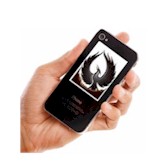|
|


IVR Solutions
This section of our technical library presents information and documentation relating to Clinical IVR Development and custom IVR software and products.
Business phone systems and toll free answering systems (generally 800 numbers and their equivalent) are very popular for service and sales organizations, allowing customers and prospects to call your organization anywhere in the country.
The PACER and WIZARD IVR System is just one of many DSC call center phone system features..
What is IVR Software?. An Interactive Voice Response (IVR) processes inbound phone calls, plays recorded messages including information extracted from databases and the internet, and potentially routes calls to either inhouse service agents or transfers the caller to an outside extension.
Contact DSC today. to learn more about our IVR services and IVR application development software.
Interactive Voice Response (IVR) Technology and the Validation of Rating Scales in Clinical Trials
By: Kristin Brand
New Research on the Use of Interactive Voice Response (IVR) Technology and the Validation of Rating Scales in Clinical Trials Presented at the December meeting of the American College of Neuropsychopharmacology (ACNP)
6th January 2003 Madison, WI At the American College of Neuropsychopharmacology (ACNP) 41st Annual Meeting December 8-12 in San Juan, Puerto Rico, studies were presented substantiating the value of Interactive Voice Response (IVR) technology in gathering patient self-report data in clinical trials. In addition to the IVR research, a new assessment shows promise for discriminating Alzheimer’s Disease from Vascular Dementia.
Reports by several investigators presented new evidence that administration of psychiatric outcome measures directly to patients by way of innovative computer-based IVR programs utilizing the touchtone telephone provides data as good as, if not better, than obtained by clinician raters. The technology offers advantages in data collection and processing that promises to reduce the cost of clinical trials and shorten the time to bring a drug to market.
Douglas Feltner, MD of Pfizer, Inc. presented a poster entitled “Evaluation Of An Interactive Voice-Response (IVR) HAM-A in a Generalized Anxiety Disorder (GAD) Relapse Prevention Trial” that compared data from IVR-administered and clinician-administered versions of the Hamilton Anxiety Rating Scale (HAM-A). Since entry into the study required a clinician HAM-A score of at least 20, all participating patients met this standard. The IVR-generated scores from the very same patients, however, showed that a substantial number rated themselves lower than the entry criterion of > 20, raising issues that cut to the very heart of patient recruitment for clinical trials.
Feltner et al. acknowledged that adding an IVR HAM-A patient-self report score “as an inclusion requirement would have reduced the number of subjects eligible for enrollment” and “using IVR HAM-A criteria for response in open label resulted in fewer responders than using OBS (observer) HAM-A criteria.” On the other hand, he also concluded: “Using IVR-HAM-A criteria for patient selection might have allowed for the detection of relapse prevention with fewer patients in both open label and double blind.”
A poster presentation by Bernice Kuca from Sepracor Inc. entitled “Interactive Voice Response (IVR) Diary Methods to Reduce Retrospective Recall Bias In Sleep Studies,” showed that collecting sleep diary information by IVR from adult and elderly outpatients was “feasible in both short and long-term studies.” As concluded in the poster, “the sponsor reported significantly fewer data queries and reduced (data) cleaning time. (IVR) technology allows for more frequent data collection between office visits, places minimal burden on subjects, and enables convenient, real-time, valid recording of symptoms versus retrospective recall.”
A poster presentation summarizing results from research conducted on the new paper-based Symptoms of Dementia Screener (SDS) was made by David J. Katzelnick, MD of Healthcare Technology Systems, Inc., entitled “Can a Short Dementia Screener Help Discriminate Alzheimer’s Disease from Vascular Dementia?” This 11-item informant-based screening questionnaire has previously “demonstrated good sensitivity and specificity for discriminating cognitively normal from cognitively impaired elderly patients.” This new study showed the SDS may be helpful in discriminating Alzheimer’s Disease from Vascular Dementia.
The clinical IVR systems discussed in the first two posters above were created, developed, and delivered by Healthcare Technology Systems, Inc. (HTS), a Madison, Wisconsin based research and technology firm led by three physicians, John H. Greist, MD, James W. Jefferson, MD and David J. Katzelnick, MD. HTS is the world leader in creating, developing and implementing clinical IVR systems to gather data directly from patients. HTS currently offers more than 30 IVR rating scales, and has the research and clinical expertise to create others. The following are some of the more commonly used scales that have been adapted to IVR administration: Hamilton Depression Rating Scale (HAM-D), Hamilton Anxiety Rating Scale (HAM-A), Liebowitz Social Anxiety Scale (LSAS), Yale-Brown Obsessive Compulsive Scale (Y-BOCS), Mental Health Screener® (MHS), McGill Pain Questionnaire, and Changes in Sexual Functioning Questionnaire (CSFQ). HTS also performs a variety of research with and for the pharmaceutical industry, including creation and validation of standardized scales, collection of patient diary data, health services research, and protocol analysis.
For more information contact:
Kristin Brand
Healthcare Technology Systems, Inc.
7617 Mineral Point Road, Suite 300
Madison, WI 53717
Phone: 608-827-2478; Fax: 608-827-2444
|



